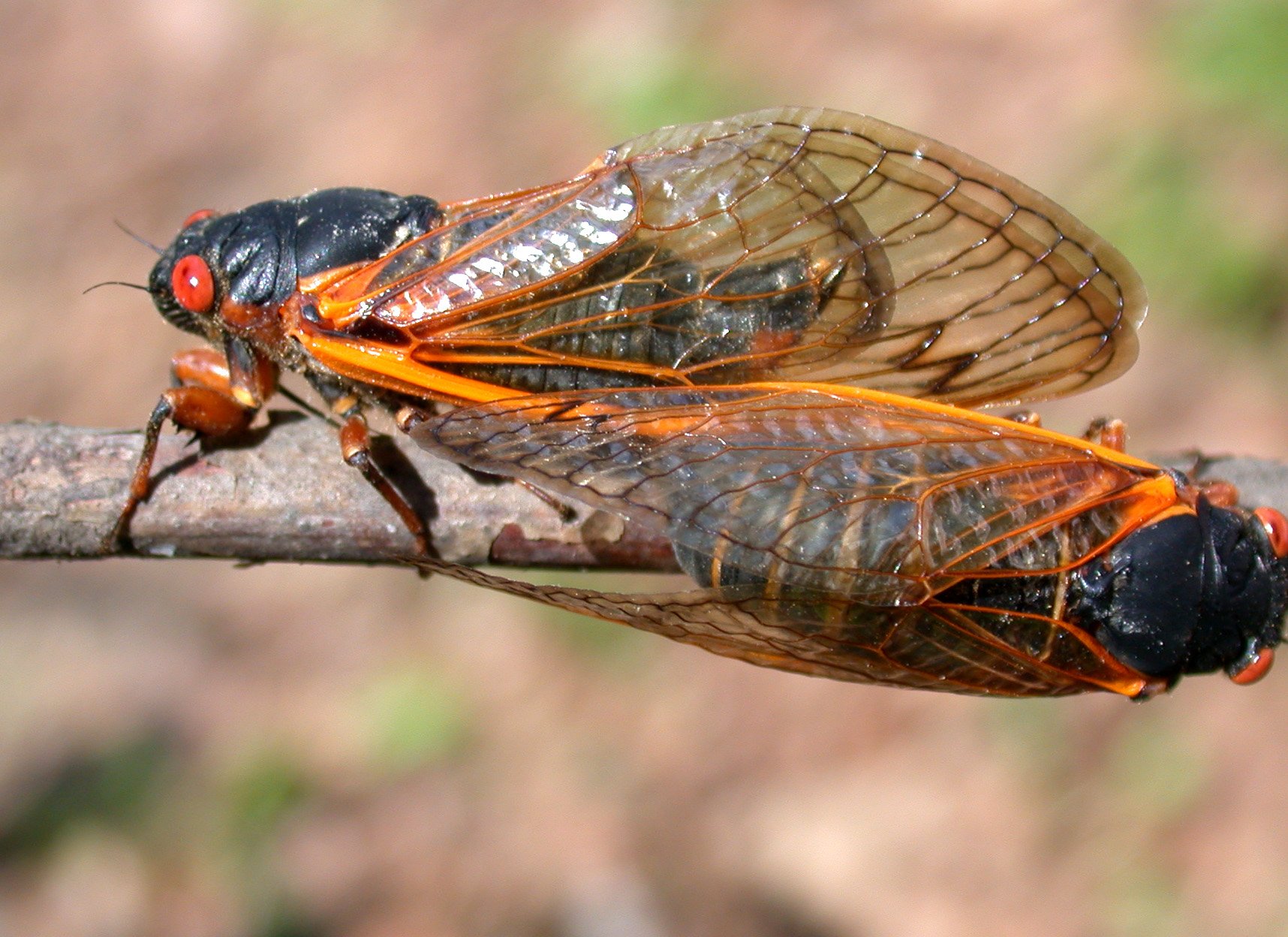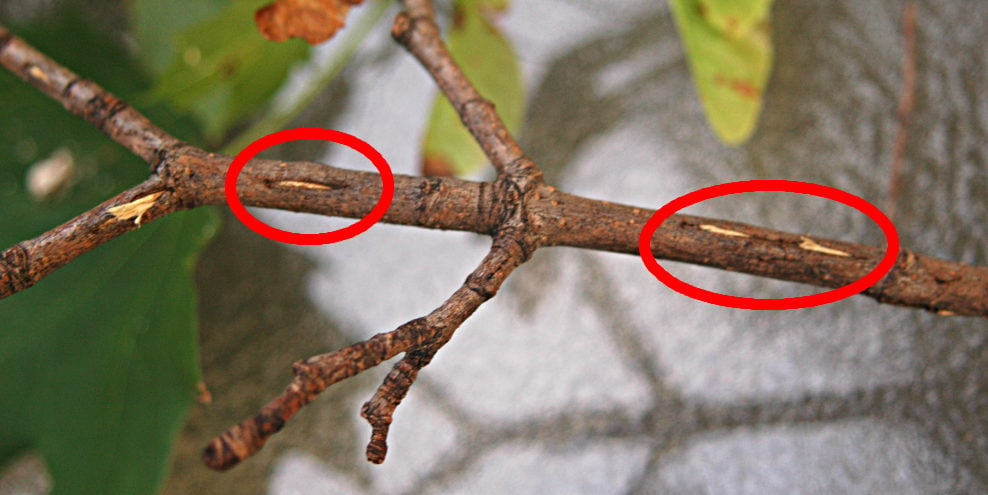
Fifteen US states, including New York, Illinois, Georgia, Virginia, Maryland, New Jersey, as well as Washington D.C., will soon be buzzing with billions, and perhaps even trillions, of cicadas. The noisy, red-eyed members of Brood X, which have been hibernating underground for the past 17 years, will emerge unannounced as soon as the conditions are right: the soil is 64 degrees, and on a night that's humid enough but free of wind and rain.
Unlike annual cicadas, who frequently show up uninvited at summer barbecues, periodical cicadas like Brood X spend most of their lives underground in an immature "nymph" stage, sucking sap from tree roots. John Cooley, who runs the Periodical Cicada Mapping Project at the University of Connecticut, told ABC News that while the critters emerge pale and small — about the size of "a grain of rice,"— they rapidly grow into the black, shrimp-sized, alien-like bugs that we are accustomed to seeing.
"They're going to emerge from that hole and go climb up some vegetation and undergo their final molt to the adult form, and that molting process takes about an hour, and the newly emerged adult will be very pale when it comes out," says Cooley. "And over the next couple of hours, it'll finish very quickly, finish expanding its body and then dark enough to have the adult colors."

Researchers have a theory on why the bugs spend either 13 or 17 years underground. They speculate that if the insects emerged after an even number of years, say, 12 or 16, they would make predictable prey for predators that have two, four, and eight-year lifespans. However, since 13 and 17 are both prime numbers, any predator that might depend on the insects would have to match that lifespan. As to how the cicadas know when to emerge? That's a well-kept secret known only to the insects!
Though they don't bite or sting, the clouds of insects can be a little daunting and even a nuisance since they seem to appear everywhere. Additionally, the constant drone of male cicadas, which sing at 90 decibels to attract mates, can be extremely annoying. "It's like a loud, loud humming noise, like millions of grasshoppers all at once," Virginia farmer Debbie Noonkester told As It Happens host Carol Off in 2020. "Then they've got this weird shriek every once in a while ... and it's a just really, really strange sound."

Noise aside, farmers have another reason for disliking the insects. They cause significant damage to young trees. Within days after emerging, female cicadas mate and begin seeking out pencil-width twigs or vines on which to lay their eggs. The incisions they create to place the eggs often cut off the food supply, causing the branch to wilt. While mature trees can withstand the damage, young fruit or nursery trees often become stunted or even die. To prevent that from happening, insect experts recommend covering the leafy areas of vulnerable trees with netting or cheesecloth during a cicada invasion.
The eggs hatch within 4 to 6 weeks, and by the end of summer, the immature cicadas drop down to burrow into the soil, where they will spend the next 13 or 17 years feeding on the plants' roots. Their work complete, the parents — whose emergence provides a once-in-a-lifetime treat for cats, dogs, birds, squirrels, rats, and even humans — die soon after. The carcasses serve as an important source of nitrogen for growing trees.
Matt Kasson, who studies cicada diseases at West Virginia University, maintains that the insects' rare and brief visits should be cherished, especially since the phenomenon is unique to the US. “So I would say just marvel in the fact that you’re witnessing something that no one else in any other part of the world gets to see,” Kasson told The Washington Post. “And it’s right in your backyard.”
Resources: ABC7chicago.com, wikipedia.com, Washingtonpost.com
